
Last Updated: 8 Mar 2022 by jsoares
Stories of Grit, Hope and Resilience from JLMC’s Girl Power Project During the Pandemic in Uganda (Part 7, Covid-19 Response Series)
by Vivian Glyck, Founder of JLMC, Audrey Kanyesigye, Country Director, JLMC Uganda, and Tessa Davis, Program Director, JLMC
Background
Since its founding in 2006, Just Like My Child (JLMC) Foundation has developed deep partnerships with rural communities in Africa to deliver sustainable programs that address health care, education, micro-enterprise, social justice, and women/girls’ empowerment. Through that work, JLMC came to understand that empowering vulnerable adolescent girls to amplify their voices and achieve their fullest potential is the most powerful weapon in disrupting the cycle of poverty. Today, JLMC Foundation is focused on expanding its evidence-based, replicable model of girls’ empowerment, first started in Uganda, into Girl Power Project® Global, beginning in the US with the Lakota Sioux Nation in South Dakota, and in Rishikesh, India.
Covid-19 in Uganda
COVID 19 has placed JLMC Uganda in uncharted waters. The health, social and economic crisis has an even greater negative impact on adolescent girls in Uganda who are now out of school. When girls are out of school and isolated in the Ugandan context, they are at greater risk of becoming victims of rape, violence, early pregnancy, forced child marriage and food insecurity, the exact circumstances we have worked so hard to help girls avoid.
And yet, the investment that we have made in the future of these girls through Girl Power Project® has created grit and resilience to guide them through these times. Every decision we make is being guided by our long-standing commitment of putting the health and well-being of vulnerable adolescent girls and their broader communities at the center of our work.
We are working with our most vulnerable girls remotely every day to proactively implement measures that protect them through communication, education and prevention. We are sending our Mandela Project-sponsored girls funds via mobile money for essentials such as food, medication and soap to ensure they are not forced to use their bodies — sometimes the only asset they own — to pay for their basic needs to survive.
Moreover, the girls — over 20,000 of them now who have gone through Girl Power Project® — still have access to Community Legal Volunteers and Girl Power Advocates — individuals who serve as critical point persons for girls to access via phone. They are going above and beyond in their role as leaders and champions of girls in this especially difficult time.
Learnings from a Girl Power Hour Radio Show on Exacerbated Need and Interception of Child Marriage
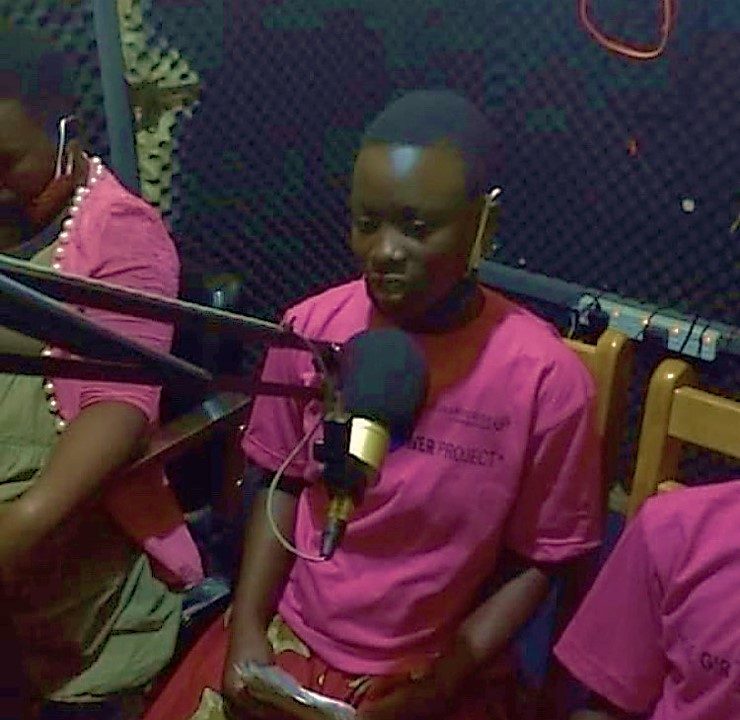
A young girl mentor responds to questions during the Girl Power Hour Radio Show. Photo Credit: Audrey Kanyesigye.
But what do you do in Uganda when you can’t reach girls where they are? When schools are closed down and girls are more vulnerable than ever because they’re stuck at home in increasingly unsafe environments?
Well, you do what we’ve all learned to do lately: you meet with them virtually!
In rural Uganda, internet connectivity is still highly unreliable, and the vast majority of young girls do not have access to a device with streaming or video capability. So, the JLMC Uganda team took to the airwaves via radio — still a very popular medium in rural Uganda.
Country Director Audrey Kanyesigye launched a 26-
week series of Girl Power Hour Radio Show segments aimed at sharing Girl Power Project curriculum with adolescent girls and the communities in which they live. The first episode featured girl power mentor- 17-year-old Swabulah Nassuna who is also a JLMC Mandela scholar.
She talked about how much she learned from the Girl Power Project on health, confidence, following her dreams and that her primary focus is now education rather than getting married and pregnant. She also vowed to continue to empower other girls to do the same; from our perspective, Girl Power graduates mentoring other girls is the “good kind of virus” that has spread rapidly through our communities.
The signal strength covers three districts that we work in – Luwero, Nakaseke and Nakasongola – and is being aired every Thursday until the end of the year covering different lessons of the Girl Power Project Curriculum; because it is reaching the entirety of those districts, it is actually reaching a wider expanse of communities than in which we currently program, illuminating for us the extent of need. This was no more apparent than in one instance, where JLMC Uganda staff had to cope with a fairly serious request.
During the “call in” portion of the show, a caller requested the JLMC team’s support in intercepting a forced child marriage between a 45-year-old man and an adolescent girl. Forced child marriage is illegal in Uganda, and yet it is heavily practiced when families and children don’t know their rights or how to enforce them. JLMC, through a component of its Girl Power Project – called Project Justice – is equipped to respond to these sort of challenges, collaborating closely with community legal volunteers, local partners, including child protection services, local health facilities, and police from all three districts.
Because of this important groundwork, JLMC followed up with the call-in guest, engaged the assistance of this network of referrals and linkages holistically and efficiently, and was able to “crash” the wedding (hear more about this story HERE); the parents and “groom” were arrested as a result and provided a powerful example to other community members about the severity of this risk factor to girls. The immediate
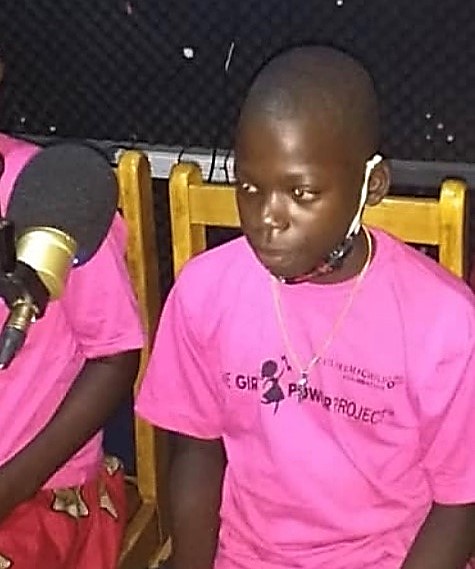
A young boy mentor discusses the implications of young fatherhood from his perspective in response to questions during the Girl Power Hour Radio Show. Photo Credit: Audrey Kanyesigye.
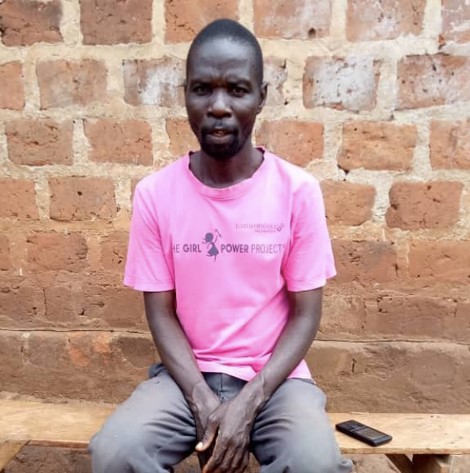
Girl Power Project advocate, Richard Kabenga, was able to recently intercept a child marriage wedding by wearing the JLMC shirt, thus demonstrating the level of impact an organization can have when equipped with the right community sensitization and buy-in. Photo Credit: Audrey Kanyesigye.
success of protecting this girl and educating the community at large is always the impact we are hoping to achieve.
In another instance, as JLMC Uganda staff recently reported, a Girl Power Project advocate heard of how a 13-year-old girl was going to be married off to a 22-year-old male in exchange for 150,000 shillings. In response, he showed up to the wedding in his Girl Power Project t-shirt. With little exchange but a lot of acknowledgement of this advocate as a fighter of children’s rights, the event was stopped and the marriage did not occur. Still now, three months later, the girl resides at home with her parents.
We are very proud of our JLMC Uganda Team and grateful that the communities are still receiving the powerful lessons held within the Girl Power Curriculum.
To learn more about our community-level impact, please review our recent evaluation:
https://ugei-ojs-shsu.tdl.org/ugei/index.php/ugei/article/view/49
To learn more about our interception of a child marriage, as well as other aspects of our Covid response, please listen to our recent conversation:
https://www.justlikemychild.org/wanna-meet-a-real-life-wedding-crasher/
To learn more about the Girl Power Project, please visit:
https://www.justlikemychild.org/girl-power-project/
To learn more about JLMC Uganda, please visit:
https://www.justlikemychilduganda.org/
To learn more about JLMC Foundation, please visit:
https://www.justlikemychild.org/
Category: Africa, Covid, field experience, on-the-ground
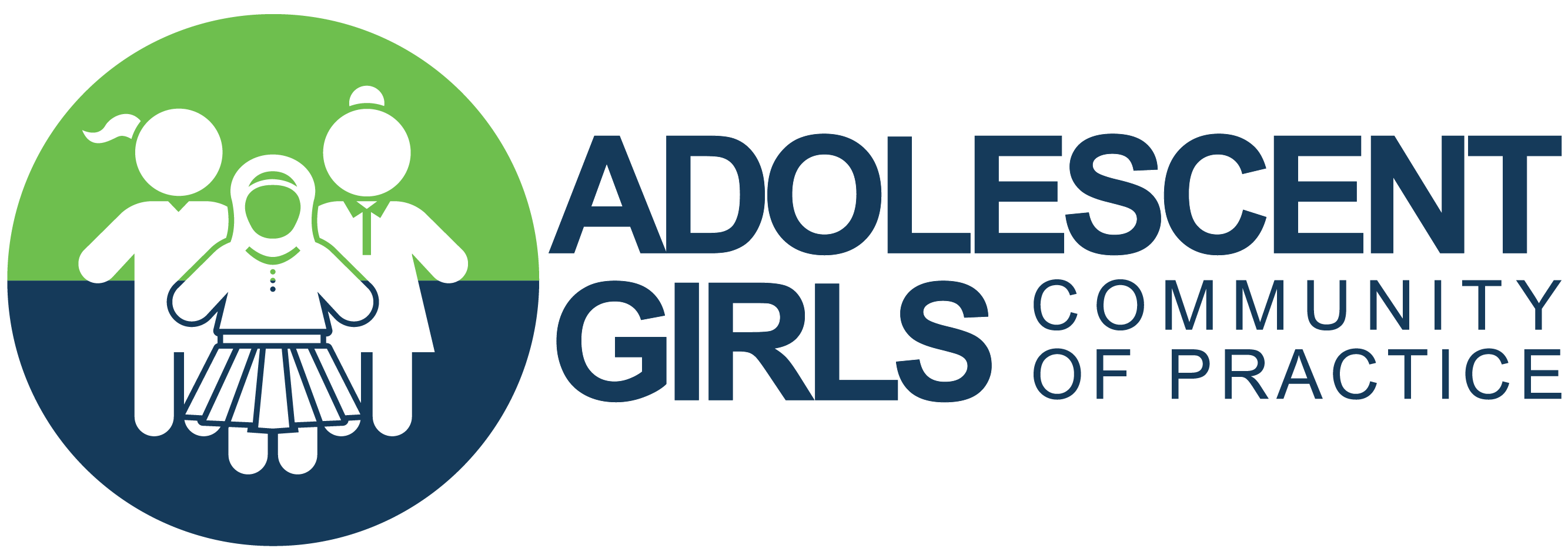
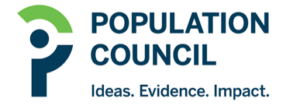

Thanks for positively impacting the lives of the adolescents. This we should do always and forever for their better future
We are so grateful to have been mentored by Population Council and to be featured alongside all of the “She-roes” who are doing everything possible to support adolescent girls.